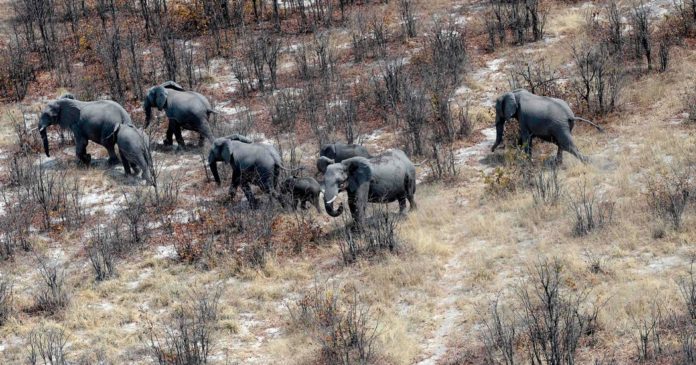Since Mr. Khama’s term expired in April, his successor, Mokgweetsi Masisi, has opened a debate on the ban, seeking to win back alienated rural voters ahead of next year’s national elections, Mr. Somerville said.
“In common with many conservation and animal rights groups, Elephants Without Borders is opposed to hunting,” he added. “They were advancing their well-known advocacy position and decided to go public with it, because clearly they do not agree with government.”
In May, Mr. Masisi’s government also decided to withdraw military weapons from its Department of Wildlife and National Parks rangers, which Elephants Without Borders later blamed for a rise in poaching. But Professor Alexander said Botswana’s military played a far greater role in anti-poaching operations, and had not been affected by the decision.
“The legal system in Botswana has never allowed non-policing agents to carry assault weapons,” Professor Alexander said. “If any ranger killed someone with those weapons, they could be held liable as well as the government.”
Mr. Khama had been a close ally of Elephants Without Borders. Together with Mr. Chase, he serves on the board of the Tlhokomela Trust, an anti-hunting conservation nonprofit. Also on the board is Mr. Khama’s brother, Tshekedi, who is Botswana’s environment minister.
At a strained news conference last week, Tshekedi Khama appeared to criticize his own government for its handling of the poaching dispute, saying, “There is no doubt the disarming of anti-poaching units could have contributed to the high rates of poaching in the Chobe area.”
Speaking at the same briefing, Unity Dow, Botswana’s international affairs minister, said that there had been a “fuzzing of roles” between government officials and the nonprofit sector, specifically referring to the Tlhokomela Trust.
Source : Nytimes













